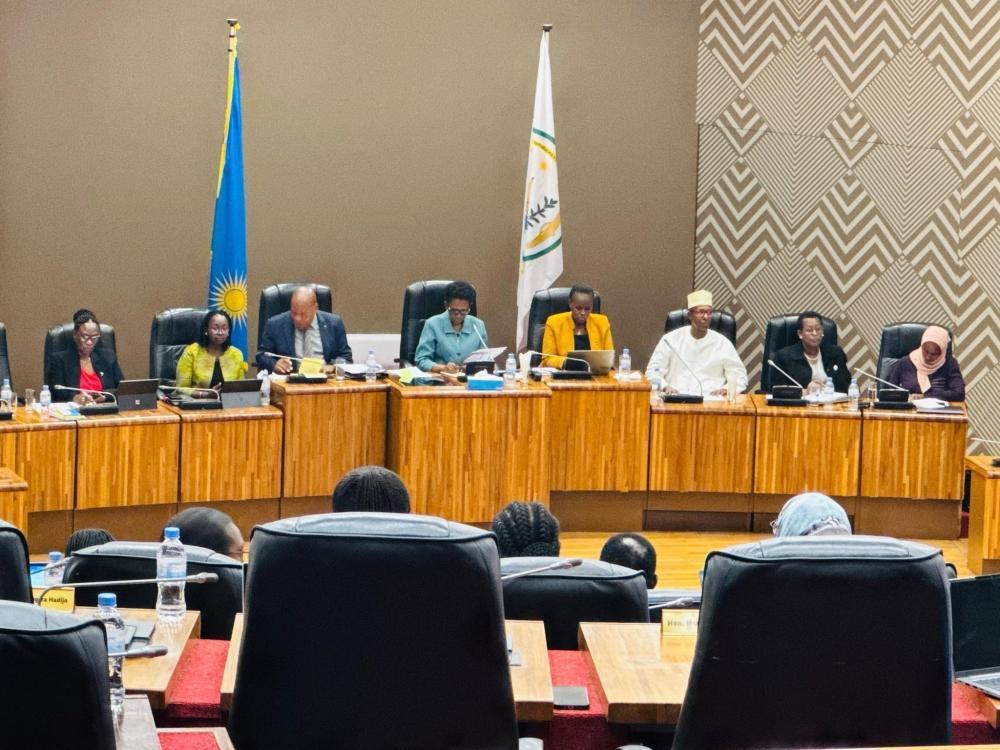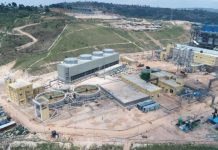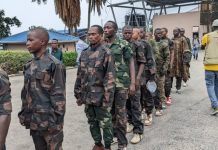Africa-Press – Rwanda. The Parliament of Rwanda has condemned a recent resolution adopted by the European Parliament saying that it has a prejudiced narrative that deliberately obscures the root causes of insecurity in eastern DR Congo and Rwanda’s legitimate security concerns.
The legislative body resolved this on Friday, February 21 during a joint sitting of both chambers – the Senate and the Chamber of Deputies – which discussed the escalation of violence in the eastern DR Congo.
Among others, the European parliament in their sitting on February 13 claimed that Rwanda was active in the conflict, including through “its de facto control of M23,” and urged the Rwandan Government “to withdraw its troops” from DR Congo territory.
It also threatened a raft of sanctions against Rwanda, including calling the EU Member States and international financial institutions to freeze direct budget support to Rwanda, sanctioning some Rwanda Defence Force (RDF) commanders, and calling for the cancellation of the 2025 International Cycling Union (UCI) Road World Championships expected to take place in Kigali, if Rwanda does not change course.
The Rwandan legislature in their Friday resolution called on all countries, regional and international bodies, to avoid adopting one-sided narratives, such as the one demonstrated by the European Parliament, and instead encouraged all warring parties in eastern DR Congo to engage in meaningful dialogue bringing lasting peace in the Great Lakes region.
The Parliament also denounced the failure of their European colleagues to mention the FDLR genocidal militia, despite its central role in the ongoing crisis in eastern DR Congo.
They also deplored the deliberate silence of the European Parliament regarding the persecution of Congolese Tutsi communities, who continue to suffer from hate speech, lynching, cannibalisation, and other atrocities.
It also condemned what it described as the European Parliament’s selective outrage regarding the recent advances of the M23 fighters while ignoring the conditions that led to the group’s resurgence.
M23, it indicated, has been fighting for the rights of Kinyarwanda-speaking Congolese and other communities who are subject to persecution in their own country.
MP Germaine Mukabalisa said that “if the European Parliament does not reconsider their resolution, this will clearly show its contribution in destabilising the security in this region, and encouraging that the genocide being committed in that area [against Tutsi Congolese in eastern DR Congo] as it was indicated by the UN continue happening.”
She added that such a situation would imply that the European Union member countries would be abdicating the responsibility to save lives in danger.
MP Eugene Mussolini also criticised the European Parliament’s resolution for not addressing the pressing issues facing Kinyarwanda-speaking Congolese, especially the Tutsi.
“Today, the Kinyarwanda-speaking people in DR Congo, mostly the Tutsi, are slaughtered and even cannibalised. But, the European Union Parliament, never condemned this despite the documented evidence available in the public domain,” he said, expressing disapproval of the fact that M23 is condemned yet it was condemned yet it is a movement that was created to save them and fight for their rights.
Need to address root causes of the conflict
Under the resolution, Rwandan legislators held that the persistent insecurity in the eastern DR Congo is deeply rooted in colonial legacy as a result of which the arbitrary borders established during the Berlin Conference of 1884-85, and the forced displacement by the colonial administration, left many Kinyarwanda-speaking people within Congolese territory.
MP Mussolini observed that as the borders in question were created by European colonisers, which led to Kinyarwanda-speaking people finding themselves on the DR Congo side, the European Parliament and other concerned entities should contribute to the protection of their rights, or if they hold that they are Rwandans, they should give them their land to be taken care of on the Rwandan side.
Still, the resolution of the Parliament of Rwanda stated that governance failures by the DR Congo government have exacerbated perceptions of these communities as outsiders, fueling ethnic divisions, massacres and hate speech against them, particularly Congolese Tutsi;
The eastern DR Congo, the parliament held, has turned into a stronghold for over 250 armed groups, the most prominent of which is the genocidal militia “Forces Démocratiques de Libération du Rwanda (FDLR),” formed by perpetrators of the 1994 Genocide against the Tutsi.
It added that the massacres instigated by the DR Congo government, in the past three decades, with the support of the FDLR genocidal militia, have resulted in the death of thousands of Congolese Tutsi, and the displacement of hundreds of thousands more, fleeing to various countries across the region, including 100,000 Congolese refugees currently hosted in Rwanda.
The FDLR genocidal militia is now fully integrated into the FARDC and has now become a strategic ally of the Kinshasa Government with which they share a common goal of attacking Rwanda, and causing regime change, it observed.
For the Rwanda parliament, the security crisis in the eastern DR Congo primarily constitutes an internal affair of the Congolese people that requires political will and good faith by their government to address its root causes.
For More News And Analysis About Rwanda Follow Africa-Press






